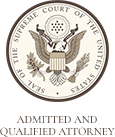Steep Consequences Await Those Accused Of Stealing Property
In Pennsylvania, taking property that does not belong to you is a punishable crime. A theft charge can arise from a simple misunderstanding, obtaining stolen property or false accusations. If you have been accused of theft, including retail theft, enlist the help of Robert S. Muir, Attorney at Law, to fight the charge.
Acquiring Property Through Intentional Deception
Theft occurs when a person unlawfully exercises control over or obtains property belonging to another through intentional deception. This can include obtaining property by creating a false impression, identity theft or through extortion. Pennsylvania also treats receipt of stolen property as a form of theft.
Classifications Of Theft Charges
The state classifies theft charges into summary offenses, three misdemeanor offenses and three felony classifications depending on the value of the stolen property. Penalties for theft crimes increase on a sliding scale. A third-degree misdemeanor is punishable by fines of up to $2,500 and up to a year in jail, whereas a first-degree felony can result in up to 20 years in prison and fines of up to $25,000.
Charges are often based on property seized by law enforcement. Pennsylvania has guidelines in place for how to value stolen property, but in general, police assign the object market value.
Branded As A Thief
In addition to the punitive penalties for thievery, collateral consequences can have a lasting impact. A theft charge blemishes your reputation, and friends, family members and future employers may perceive you as untrustworthy.
Whether you have been accused of theft at Walmart or Sheetz or made a mistake at some other location, you need a qualified lawyer to help you with this problem. Possible defenses include permission to take the property, duress and entrapment. To schedule a free consultation at my Indiana office, call 724-471-6457 or reach me by email.



